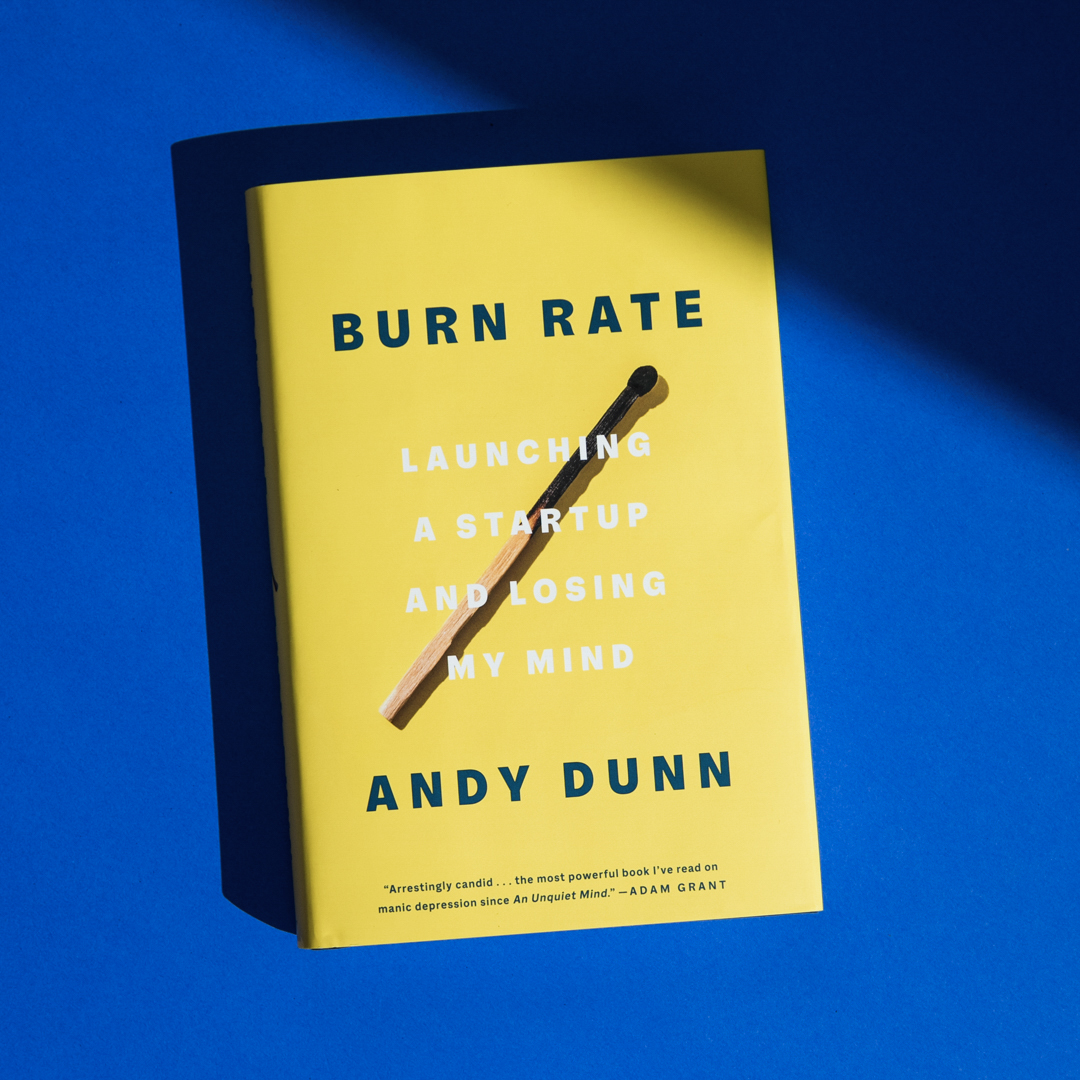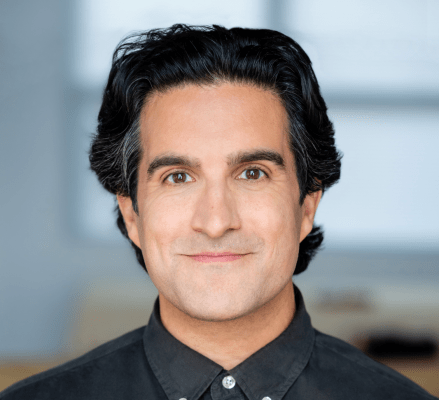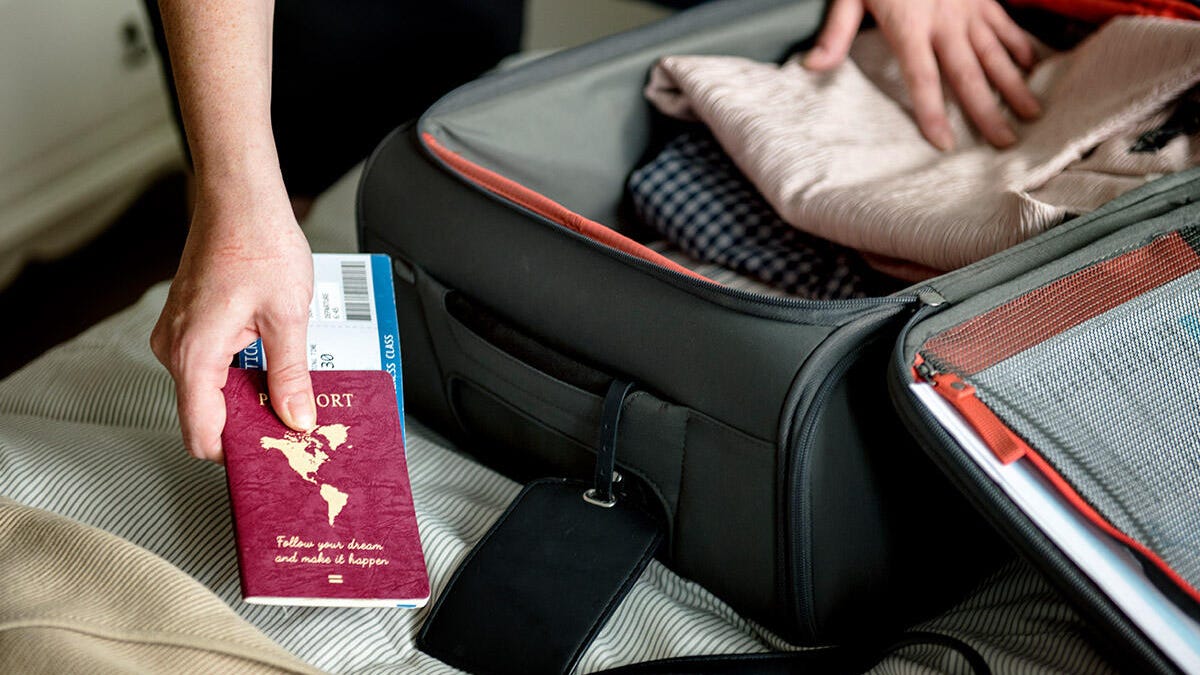Bonobos cofounder Andy Dunn is taking public his secret battle with bipolar disorder – TechCrunch
Andy Dunn, the cofounder and former CEO of the men’s clothing company Bonobos, has something new to sell: his life story. It might just save another life.
In “Burn Rate,” hitting bookshelves tomorrow, Dunn goes public with a secret he managed to hide from the public for decades despite being a high-profile founder for much of the time, and despite several trips to the hospital tied to psychic breaks, one of which saw him turn violent enough that he was charged with misdemeanor assault and felony assault of a senior citizen.
Dunn, like an estimated 4.4% of U.S. adults — and an even higher percentage of entrepreneurs — has bipolar disorder. Specifically, he has Bipolar 1 Disorder, defined by the National Institute of Mental Health as featuring “manic episodes that last at least 7 days,” or “manic symptoms that are so severe that the person needs immediate hospital care” and that also include depressive episodes lasting at least 2 weeks.
Dunn writes in his gripping new book that he was first diagnosed as a 20-year-old Northwestern University student after experiencing a psychotic event (he was talking to birds and thought he was the Messiah, among other things). But the doctor offering the diagnosis also said that if Dunn didn’t have another episode for five years, it could prove a “one-off psychotic event.”
The term “one-off” became a “life raft our family clung to for years,” he writes.
In the ensuing years, Dunn would establish Bonobos as one of the first breakthrough indie men’s brands; battle with his cofounder, Brian Spaly; and bring in a new CEO, then replace her with himself again three months later. His sister Monica worriedly kept tabs on him. Yet no one, Dunn included, foresaw what would happen in early 2016, when he became so fully unglued that a manic episode — his first since college, he says — ended with him howling at the moon in his apartment, naked, and subsequently striking his then-girlfriend and her mother, who were trying to calm him. A weeklong stay at Bellevue Hospital in New York followed, followed by a 12-hour jail stint, and finally, the help he needed in the form of therapy and medication.

Image Credits: Penguin Random House
At the time of that most extreme episode, Dunn writes, he was consumed with shame and terrified that he would become fodder for Business Insider. But nearly two years after Bonobos was acquired by Walmart for $310 million in the summer of 2017, Dunn himself began putting pen to paper to tell the world his own version of events. In an interview with Dunn earlier today about the book, we talked about its impetus; how he lives now without the hypomania that drove him for so long; and what’s next.
Excerpts below have been edited lightly for length.
TC: In this book, you really leave no stone unturned. Many of the details throughout were presumably very difficult for you to share. Were you worried someone might tell your story if you didn’t do it yourself?
AD: I think that the moment of highest intrigue would have been right after it happened, when I was in and out of the courtrooms in New York, or the “Tombs” [a detention complex below the courtrooms in Manhattan]. There are court reporters; there are people who like to break scoops. I remember this moment where there was a police blotter that came out . . . and somehow it didn’t get picked up. I was terrified that I wouldn’t be able to tell the story in my own words, because as you know, once something comes out, the headline is the story.
I don’t think there was much danger that someone else was going to tell it at this point, because, you know, whatever. I sold pants for 12 or 13 years and had more or less moved into more of a private life with a baby and kind of stepped back from social media and from writing online essays. So I don’t think it would have come out. And I think that’s typically how we treat mental illness, which is: if we can get away with not talking about it, then let’s definitely not talk about it.
[But] the only reason to hold back is if something is unspeakable, and so by telling in precise detail a lot of things that most people probably wouldn’t write about, it was a way of saying, ‘I can write this because there was nothing wrong that I did.’ The only thing that would be wrong would be to not deal with it, and I want to help people [with their own] acceptance because until you accept it, you can’t deal with it, and we don’t have the luxury of people waiting 20 years to accept their diagnosis.
Among the details included, you share that you’d agreed to pay $13,000 for the Bonobos.com URL without first talking with Brian Spaly, then you called him afterward and pretended like you wanted his input. You called yourself a liar afterward, one of many times where you share your innermost thought processes. Are you somebody who writes your thoughts down routinely? Did you reach out to friends for some of these details?
I did talk to people throughout. I tried to approach it a little bit like an historian; I had some awareness that it’s very hard to get that right [because] one’s perspective is so biased. So wherever there was an opportunity to lay blame at my own feet rather than someone else’s, I felt like it was important to bias towards that because the only reason not to do that would be a matter of some kind of ego accounting.
As you can tell in the book, I didn’t start off that way. I was externalizing a lot of blame . . . unpacking that dynamic between me and Brian is a big piece of the second part of the book, which is why I thought that vignette was important.
“Burn Rate” provides the clearest look inside the mind of someone with bipolar disorder that I’ve read. It’s everywhere and yet there’s so little understanding of it. It was shocking to read about your first episode wherein you were convinced you could fix the world’s ills and were knocking on strangers’ doors, thinking you would be welcome . . .
AD: The Messianic delusion I remember so clearly. Imagine there was a day or a few days where you thought you were a deity. It’s very exciting. If you actually have that thought, and you think it’s true, it’s like being a superhero in a movie or something. That said, there are other things that I didn’t remember at all, including that story about talking to birds. I didn’t know that until I interviewed my friend Eric — who’s now running for Congress, incidentally. We sat down on a park bench in Chicago about a year ago or so and I said, ‘Hey, I’m writing a book. Here’s what it’s about.’ And he goes, ‘Andy, you know, we’ve never talked about this in 20 years.’ It was profoundly memorable in different ways for both of us and it was so interesting to plumb the depths of that and discover that the reason we never talked about it was he felt like he tried a couple times and I pushed him away, which sounds very much like someone in denial of a recent diagnosis.
You mention elsewhere another friend who graduated with you and with whom you tried to talk about what happened and this person essentially said, ‘Let’s never think about this again.’ I’m sure that’s a common occurrence in situations like these, either because the individual doesn’t know how to respond or worries about humiliating their friend.
It’s so vivid because in retrospect, I was making a bid to bring this up [and] it was a hard thing for me to do. And the way that he received it was like, ‘Let’s not go back there,’ which, by the way, is like a very Gothic Midwestern approach. The flip side of it would be like, ‘Well shoot, let’s go back there. This is the good stuff, this is where growth happens.’ And I felt so shut down by that.

Image Credits: Andy Dunn
You’re very clear in your writing about the moments where you started to have a psychic break. In one example, on the day of your now-wife’s bridal shower, you said that owing to lack of sleep, at some point during that day, you felt like you were becoming the Statue of Liberty. Do you think if you were in the unfortunate position of experiencing another episode, you’d be able to see and recognize that and get help more quickly or not necessarily?
That micro episode, as my doctor calls it, is one of the more unusual things he’s ever seen. Normally someone who is having psychotic thoughts can’t recover the same day; it requires hospitalization. But let’s be clear. I had to be handcuffed that day. I was taken to Mount Sinai. So no, I don’t think you can self-police. Once you’ve crossed the threshold of having irrational thoughts and you’re no longer discarding them, you’re in trouble.
For me, the goal is, between the medication and sleep, to not get to the place where I can’t distinguish between a rational and irrational thought. I’ve never not discarded an irrational thought when I had a good night’s sleep and I’m on my medication. That’s why we’re so vigilant about sleep as a family
You also write about hypomania — a kind of revved-up energy that’s part of bipolar disorder — driving you forward during those Bonobos years. How do you approach your work now?
Today I had a conversation with a friend’s brother, who’s going through some episodes and was recently diagnosed with Bipolar 2 . . . with the same kinds of potential for depression and for hypomania, and he was saying something that felt really familiar to me, which is that the changes that he’s made lifestyle wise — taking out drinking [owing to medications like] lithium, he feels totally numbed.
The journey for someone who has gotten a bipolar diagnosis and is trying to figure out how to deal with it [is] like almost a pharmacological journey to see if there is a safe way to be hypomanic again. My doctor has a beautiful saying, which is, ‘Might we all be controllably hypomanic every day.’ Hypomania is a mood state where you’re feeling very energized, you’re having creative vision, you’re in a state of flow, you’re feeling very optimistic, you’ve got pep in your step. And if we’re fortunate, we all have some days like that, right?
If we’re fortunate, we may have, I don’t know, 10 or 20 days a year like that. I’m not sure what the number is. It depends on the person. My manic episodes were set apart by 15 years between 2000 and 2015, but in the intervening years, I was probably hypomanic like 50% of the time, depressed 30%, and was in kind of a normal middle mood state the other 20% of the time.
So you found medication in recent years that works well for you.
I did. I had a year of experimentation to get to the right mixture of medications. I went so deep into it in the book that my nanny recently asked me if I had an advertising deal with Pfizer. [Laughs.]
And you have a new startup — a kind of Tinder for friendships — that’s launching in November?
It’s in the same zone around mental health. The mission of the company is to eliminate loneliness and it started as a lot of startups do; it was one product idea that we had, and we were excited about that, and in the process of working on that, it didn’t work but we discovered something else that was working and that was around friendship discovery.
There’s a whole contrarian thought that you can actually build a friendship discovery platform, the historical, non-contrarian [take] being that people would find it to be like adverse selection to go to a website to make friends or to go to an app to make friends. So we’re testing that assumption now. It’s called Pumpkin Pie. We’re pre-product-market fit. So we’re still jamming and iterating and learning behind the velvet rope, so to speak. Hopefully, we’ll find something that’s clicking and then we’ll talk a lot more about it at that point.




Pingback: Surface Inspection Lamp
Pingback: Sciences Diyala